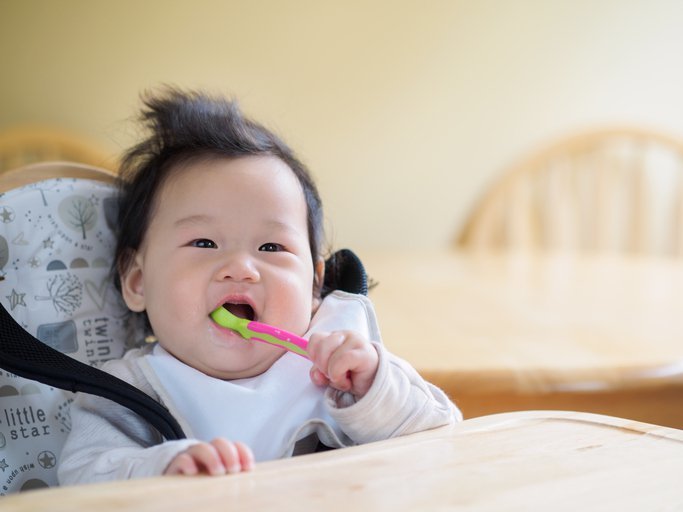Contents:
Medical Video: 10 Traits of Toxic Parents Who Ruin Their Children’s Lives
When faced with fussy screaming kids at home, you can move it to another room and ignore its tantrums until it subsides on itself. But it's another story if the child suddenly goes berserk when you're outside the house.
Being the center of attention around people when dealing with fussy children in public places is not a pleasant experience for every parent. People often judge that fussy children are a sign of failure in parenting. In fact, fuss and tantrums are a natural part of a child's growth and development.
But this does not mean you let your little one scream in public. Using a number of methods below, you can deal with fussy children in the crowd like a professional.
How do you deal with fussy children in public places?
1. Parents do not go berserk
It's not always easy to stay calm and not get carried away when faced with fussy children. But scolding your little one will only aggravate his emotions. What's more, if you give punishment for "mischief". He will begin to save his anger and frustration in himself. Of course this is not healthy for him, both physically and mentally. Therefore, take a moment to calm down to prevent the situation from escalating.
Observe what causes fussy children. Children usually go berserk when they are tired, sleepy, or feel uncomfortable. Observe what is the real cause, and overcome the problem.
For example, if you think the tantrum is caused by hunger, tell your child that they can eat snacks after returning to calm down. But speak with a soft voice and an expression that remains calm even though the little one is still screaming. If you shout or come back to scold him, he is even more fussy.
2. Speak privately with children
If a child's tantrum arises from a burst of frustration, help your child learn to regulate his emotions by giving them the skills to stay in control while feeling angry.
In an interview with Parenting, child behavior expert William Sears reminds parents that whining is part of the child's learning process to learn what words are like that can make their needs fulfilled and which ones don't.
Sears added, it's enough to tell your child to tell you honestly what is bothering him. For example, "Mama knows you are angry because it's time to go home. But I'm tired, and you must be tired too, right? "Or" I know you want the toy and you're angry, right, with dad because you didn't buy it? "
Clear and no-nonsense speech when talking to children will represent their feelings that are difficult for them to express. Reacting calmly like this will show your child that if they can control their emotions and use words rather than tears, you can solve this problem together.
3. Count to ten
Counting will warn your child that his behavior is not acceptable without requiring you to nag him. Plus, the time spent while you count can shift your child's focus to move from whining to other activities, such as playing with other toys or becoming a fun watching tv.
Also, counting slowly from 1 to 10 gives you a "break time" in the middle of your battle and your child to slightly empty his mind and calm down. When a child's whining has begun to make your blood boil, by counting you can be able to pause before actually exploding to think about how the right reaction to face a fussy child in the situation.
4. Invite the child to take a deep breath
Like an adult, stress can also make a child feel uncomfortable with his own body and surroundings. But he can learn to fight those feelings by drawing a few deep breaths. Other times the child is calm, teach the child to take a strong and exhaling breath like pretending to blow out a birthday cake candle; Then, when you see it starting to fuss, you can use a simple code like "blow the candle" to remind him to breathe for a moment.
You can also rely on this deep breathing technique to calm yourself when facing fussy children.
5. Leave it alone
During tantrums, toddlers cannot think clearly. His emotions will take over him. They cannot, and do not know how, to handle this emotional overflow. Anger 'colonizes' the child's front cortex, the area of decision making and judgment. Therefore, persuading will not bring results, let alone force or scold, because the part of his brain in charge of regulating common sense is not working.
If your child is fussy without stopping while you are out of the house or with a lot of people, don't give any reaction. Do not give positive or negative reactions, not even the eyes. You can tell the next person that your child needs his parents, excuse me, and say goodbye. Leave the room, find a quiet place, go to the car, or immediately go home. Remember, the purpose of your child whining without cause is to simply get your attention. So, don't be easy to submit to children's tantrums.
Meanwhile, you can play cellphones, read books, or take a break. When he is tired of whining, then you can talk to him to advise him or continue shopping. Not that you are a bad parent if you ignore a child who is tantrum. Crying and whining at tantrums actually help children to vent their emotions in a non-destructive way. They can issue unrest, recover themselves, and regain self control, all with their own efforts without involving themselves in fighting to shout with you.
6. Love gifts
When successful children learn to control their behavior, giving gifts is a good response. You can use the "Good Kid's Jar" and put a marble into the jar when they manage to reduce their own tantrums, promising that if the jar is filled with 10 marbles he can watch his favorite movie in the cinema or play for 1 hour in the children's play area. In this way, every time the child will go on a rampage, he will remember the lure of "reward" and think a thousand times before his anger really explodes.
The key, don't overdo it in rewarding children. Wrong and wrong, this system can turn into a host's weapon for you.
7. Hug
When you see a child going berserk, maybe hugs are the last thing you can think of. Hugs can make a child feel safe and know that you care, even if you don't agree with his actions. But, it shouldn't be any hug. Give a tight, firm grip, not a sweet hug to pet lulls, and don't say anything as long as you hug the little one until the whining subsides.
7. Don't apologize
When faced with fussy children in public, as a parent you may feel obliged to apologize to the "audience". Sears warned that apologizing for representing your child could be a big mistake. Fuss is the child's chosen behavior, so children need to be responsible for apologizing for their own behavior. Whether they make a personal apology, or write an apologetic letter, children need to be aware of the actions that caused their anger.
As long as you face fussy kids consistently effective at home - that is by ignoring them and not giving up - eventually they will be able to control themselves when you are both traveling.












